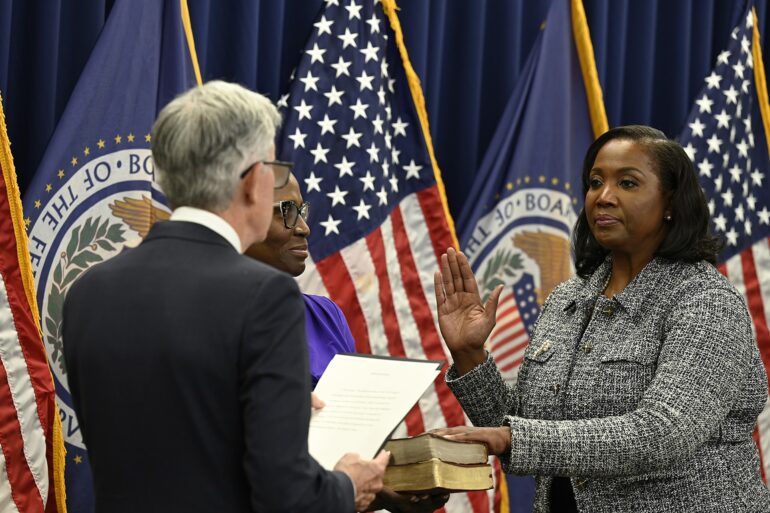Federal Reserve Governor Lisa Cook reportedly won a reprieve on Tuesday after a federal judge temporarily blocked President Donald J. Trump’s effort to remove her from office, setting up a high-stakes legal battle over the independence of the central bank and allegations of misconduct by one of its senior officials.
U.S. District Judge Jia Cobb, appointed by President Biden in 2021, issued a preliminary injunction granting Ms. Cook’s request to remain in her position while her case against the Trump administration proceeds.
In her ruling, Judge Cobb wrote that the “removal of a Federal Reserve Governor extends only to concerns about the Board member’s ability to effectively and faithfully execute their statutory duties, in light of events that have occurred while they are in office.”
The ruling came after Mr. Trump announced late last month that he was firing Ms. Cook, citing claims of mortgage fraud raised by Bill Pulte, the president’s Federal Housing Finance Agency chief. “You are hereby removed from your position on the Board of Governors of the Federal Reserve, effective immediately,” Mr. Trump wrote in a letter posted alongside his announcement on Truth Social.
Mr. Pulte alleged that Ms. Cook improperly used an Atlanta condo as her primary home while also declaring a Michigan home as her primary residence just two weeks after taking out a loan on the property.
He said he had referred his findings to the Department of Justice.
Though Ms. Cook has not been charged with any crimes, the allegations have fueled questions about her conduct and whether she should remain in a post that carries enormous responsibility over monetary policy and financial stability.
Ms. Cook, who became the first Black woman to serve on the Fed’s Board of Governors, responded by filing suit against Mr. Trump. She argued that his actions were “unprecedented and illegal,” contending that the president had overstepped his authority in seeking her removal.
Judge Cobb’s ruling, while temporary, ensures that Ms. Cook will continue to sit on the Board as the case unfolds.
But it also highlights the deepening clash between an administration determined to challenge Washington’s status quo and a judiciary still influenced by appointees of Mr. Trump’s political opponents.
For the White House, the allegations of mortgage fraud underscore a broader theme the president has pressed: holding powerful officials to the same standards as ordinary Americans.
Mr. Trump has made clear that he views Ms. Cook’s actions as disqualifying, even in the absence of formal charges.
Supporters of the president say that ordinary families cannot engage in double-dealing with mortgage applications without facing consequences, and nor should a senior central banker.
Ms. Cook’s allies, however, frame the dispute as an attack on her historic role at the Fed. They argue that the administration’s attempt to oust her represents an erosion of institutional safeguards designed to insulate monetary policy from politics.
The case is now expected to move quickly through the courts. For the moment, Judge Cobb’s injunction keeps Ms. Cook in place, but the broader question remains unresolved: whether a president has the authority to remove a sitting Federal Reserve governor when allegations of misconduct threaten the credibility of the institution.
[READ MORE: Jessica Tarlov Concedes Break With Biden over Key Failure]



